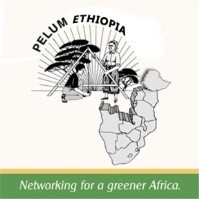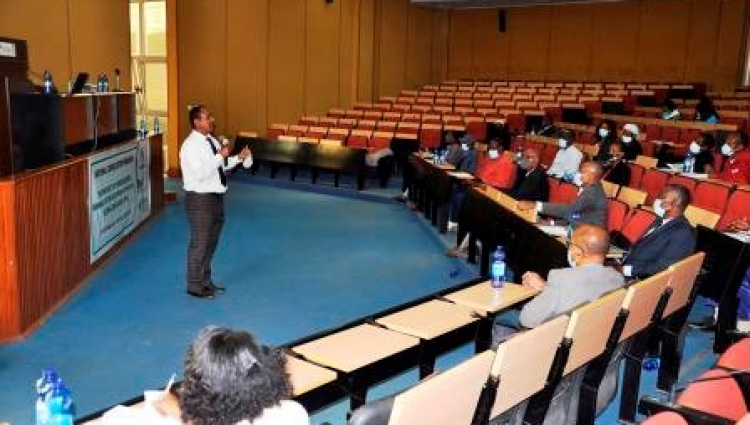PELUM Ethiopia consortium in collaboration with CCRDA and PHE Ethiopia has organized a one day National consultative workshop on “the prospects of agro-ecological farming system in Ethiopia in the face of globalizing agriculture” with special focus in Enset. The national consultative workshop was held on 05 November, 2020 at CCRDA’s meeting hall in Addis Ababa. The workshop brought together approximately 62 participants, representing development associations, farmers, academics, universities, researchers, CSOs, private sector, governmental officials (HoR, PMO, MoA, biodiversity institute etc.) and media (print, radio and TV), attended the workshop.
The main objective of the national workshop was to deliberate and be equipped with diversified information mainly on the possible pros and cons of genetically modifying one of the few endemic crops in south western Ethiopia: Enset
The opening ceremony of the workshop was presided over by shamble Gebremedhin Birega, director of the Ethiopian consumers Protection Association and moderator of the workshop and Dr. Hailu Araya, PELUM Ethiopia director. The first opening remark was given by Dr. Hailu Araya. He expressed his gratitude for the participants for being part of the occasion. He reiterated the importance of the consultative workshop and the presence of farmers in the workshop is invaluable. The next official opening was given by Weilero Habebo, an elder and exemplary farmer from Kenbata..
The workshop combined presentation from subject experts, panel discussions of experts and farmers from selected enset growing areas. The latter is unique and unusual in similar workshops. During the workshop, five consecutive presentations were presented to set the scene.
The expected outcome of the workshop was to improve participant’s awareness:
- On the richness of Ethiopia’s agro-biodiversity for its food and nutrition security and food sovereignty in this globalized world
- On the role of agro-ecology in feeding Ethiopia and beyond;
- On the role of enset growing farmers’ indigenous knowledge to control enset bacterial wilt and enhance diversity and productivity;
- Of the regulatory bodies on the need to involve all concerned stakeholders including mainly farmers and consumers in GMOs application processing in Ethiopia;
- Of member of house of people’s representatives(parliaments) on the need to closely monitor stakeholders’ involvement in and performance of GMOs application processes in Ethiopia; and
- Of the role of media and general public on the need to harmonize the role of civil society and research institutions in promoting and practicing alternative and sustainable solutions to ensure food and nutrition in Ethiopia and beyond.
During the panel discussion, farmers shared their indigenous knowledge and vast experiences on how to keep growing healthy enset crops in their area. Moreover, the discussants raised a number of issues which needs collaboration and intensive follow ups to save Enset from GMO related challenges. Moreover, participants gained constructive knowledge on the subject matter. Besides, one of the big surprises of the workshop was snacks, which is a product of Enset
In general the workshop was successful and the participants agreed to organize similar workshop to further discuss and elaborate on the importance of indigenous crops like Enset. Thus, a number of ideas suggested for better impact.
At the end of the workshop, Appreciations are due to hosting organizations and all participants for organizing and honoring the invitation, respectively as well as for their meaningful contribution to the proceedings of the national consultative workshop.

